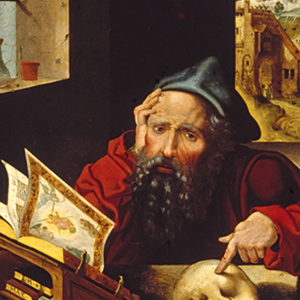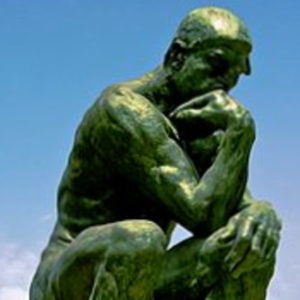In 3 words, I can sum up
what I learned about life:
It goes on!
(Robert Frost)

In 3 words, I can sum up
what I learned about life:
“It goes on!”
(Robert Frost)
"Foggy Beacon",
My Book of Essays
These Essays started in 2013 after Jan W. Vasbinder –the director of the Complexity Program Para Limes at NTU in Singapore, asked me to read some articles on the topic Est meets West, West meets East. These readings opened a whole new world to me: (too) many of my feelings, thoughts, belief were in fact connected to the canon of Chinese philosophy, the Daodejing 道德經, a short text of about 5,000 Chinese characters attributed to the 6th-century BCE sage Laozi.
The essay on Complexity and Interconnection both summarizes the vivid actuality of both Laozi and the Santa Fe Institute, as well as my own biases on anarchism and freedom. This connection is much more selective in No Gods, No Masters and Chao ab Ordo, both much more focused on my prejudices and strong beliefs.
In The Wandering Explorer, I devote much writing on the direct relationship between the Dao and the Book of Changes, and modern, current physics –even ‘nascent physics’. The Dao also applies to Consciousness, and anticipates/inspires Tiantai and Tantric Buddhism.
O Tempora o Mores is a flash-back on my own history, and an attempt to self-introspection; it should explain –but never justify- other, future Essays.
Finally, since we all live in societies led by Ignoramuses, why not denounce these morons?
As humans, we need Food and Sex, i.e. Pleasure. We are, all over our planet, the only living organisms that can eat without hunger and enjoy sex mostly without procreating. It should tell something to the nutritionists and the killjoys of all denominations.
But Pleasure is also freedom, anarchy, lawlessness, transgression, immersion, orgasms –basic instincts and highest levels of sensuousness. A 1989 wonderful British-French movie The Cook, The Thief, His Wife & Her Lover summarizes –in a surrealistic, sadistic, cannibalistic, but altogether tremendously entertaining way- what we could (or should we?) take as ultimate message.
Pleasure is complex, and the centers in the Central Nervous System are just a (small?) part of a complex network. Anhedonia (Wikipedia) is a diverse array of deficits in hedonic function, including reduced motivation or ability to experience pleasure. While earlier definitions of anhedonia emphasized the inability to experience pleasure, anhedonia is used by researchers to refer to reduced motivation, reduced anticipatory pleasure (wanting), reduced consummatory pleasure (liking), and deficits in reinforcement learning.
We also need Health (or escape deadly maladies –hence updated critical knowledge; and we need to live and enjoy our daily pleasures on this only planet: our Blue dot, Earth. Being careful stewards is our duty and our fate depends on it.
The Buddha, in his overwhelming wisdom, would have agreed. He knew that acquiring knowledge was iconoclastic. We must burn our creeds, our faiths, our habits regularly, and never, ever, ever trust anyone. Including ourselves.
We are phoenixes who will fly away from the pyre, young forever.
With the omnipresence of social media (Facebook, Twitter and their sequels) of self-proclaimed and self-promoting (pseudo) experts and pundits, gospel-style respect to the printed texts, fake and overblown news, it is just impossible to scream STOP! –and leave my brain alone.
Indeed, we are told to open our brain; but When? How? To what? Few of us are trained neurosurgeons who can drill a hole or saw open a skull. Hence it is a figure de style (figure of speech) that points attention to neuroplasticity, the nuke that blew apart the myth of immutability of neurons at adult age. Or to consciousness, our most human faculty.
The two philosophers who intervened at a critical age (16-17), René Maublanc and Emmanuel Peillet, the Marxist and the Pataphysicist/cacti expert, have left their stamp on me. Then Quantum Physics (a “hypothesis” when I was at Henri IV in the early 1950s!), with its strict correlation with the Dao,2500 years later, confirmed the notion of improbability; George Berkeley and Donald Hoffman, 300 years apart ask if life in a real world, or in a virtual one.
We now have tools: mind-altering substances that we master much better; and a creation, a new Golem or Frankenstein that we discover everyday like a new multiverse as we address it to perform never-ending new tasks: Artificial Intelligence (AI) and its algorithms.
Asian wisdom has been blatantly ignored, scorned, vilipended for millennia by the followers of the Abrahamic religions. Will the (new) Enlightenment finally open our brains?
Music, art, love… These are the human needs –after food and sex. Or they should be.
Creating history, thinking and devising philosophy, caring about the future but not freaking about destiny, and a few more –these should be our goals, our legacy. But if History can teach us anything, it did not, does not and will not happen anytime soon. The reasons are complex, and not understood. The explanations and justifications abound: all are lies. Our biology rules but does not reign. Some –mostly male- impulses get on the way quite brutally. Like power, or its delusion.
Thinkers have been pondering with these mental, philosophical, social and political constructions since the neolithic times –when agriculture and societal organization, division of labor, and rules began. Fulfillment or happiness were not on any true agenda. War was and started early. It never ended. There were always a posteriori fabricated justifications, while simultaneously force-feeding the masses, the children, the subjugated with bromides, fake news, slogans, and lies. Delusion sells, and masses, primed by social media are currently avid consumers –and disseminators. The US presidential elections were a case-in-point, but the same tactics are everywhere; avatars populate more than real people!
And the United States of America is not the most striking example: look at Putin’s Russia, Modi’s India, Dutertre’s Philippines, Nigeria’s successive predators, the ‘Democratic’ (sic) Republic of Congo with the Kabila dynasty and its cronies, and a lot more –mostly in the poor world. All claim high and loud their devotion to the ‘people’ –who they ignore and squeeze dry.
It is now blatant, but we seem to be anesthetized, or drugged, or drunk, or all-of-the-above. Outrage! Should instead be the rallying cry.
Discovery is the act of detecting something new, or something previously unrecognized as meaningful. It may refer to observing or finding something unknown, or –in fiction- character’s learning something unknown. It generates surprise, wonder, fear, and many more –mostly unpleasant! – feelings. We are all comfortable in the warmth of the familiar. But without new ideas, facts, concepts, even whole worlds, we would regress, rot and quickly die. Discovery is not necessarily novel; nothing is built in/on a vacuum; many (most?) discoveries appear because they were built on the shoulders of (previous) giants.
Memory is the faculty of the brain by which information is encoded, stored, and retrieved when needed. Memory is vital to experiences; it is the retention of information over time to influencing future action. If we could not remember past events, we could not learn or develop language, relationships, or personal identity. Memory is not a perfect processor, and is affected by many factors. The ways by which information is encoded, stored, and retrieved can all be corrupted. The amount of attention given new stimuli can diminish the amount of information that becomes encoded for storage (Wikipedia).
The Essays in this volume are chasing both discovery and memories –although pruning, clipping, trimming and selecting are obvious. It would take many, too many lives to achieve a tiny part of this goal. Consider my attempt as the very first step: a journey of a thousand miles started with a first step (Laozi).
In his poem L’Horloge (The Clock), Charles Baudelaire barks, eructates, vomits time:
Impassive clock! Terrifying, sinister god,
Whose finger threatens us and says: “Remember!
The quivering Sorrows will soon be shot
Into your fearful heart, as into a target;
Nebulous pleasure will flee toward the horizon
Like an actress who disappears into the wings;
Every instant devours a piece of the pleasure
Granted to every man for his entire season.
There are many more verses…
Language models and shapes thought. It comes now in many shapes, forms, media, technologies, aims, goals and complexity. Sleep cleans each night our mind from its dross and scoria. But then…we dream and construct more.
Time has been an obsession since human times. Measuring, traveling (or attempting to), mythologizing, damning or celebrating, time was and remains everywhere -at all times. Because we have in our molecules (and atoms) life. And life is by itself impure, the result of complex interactions that are actively explored –but that, so far, escape a simple definition or explanation. Just like politics!
Warning! Since many (too many?) studies and essays have been –and are– published, looking at a given problem or concept from different angles, you may feel a repetition in some of my reports; ‘it’s not repetition, it is reinforcement. Indeed, my borrowings attempt to illustrate the complexity of an issue. And it is going to get even more complicated as time passes.
My "Rants"

Gaia, the Mother
In the Western world, our concept of the creation of the Earth (and
everything is based on the beginning (Genesis 1) of the Hebrew Torah (Bible)…

No Bullshit!
This title is a failed program. In fact, we are surrounded –and more every
second– by amazing lies, made–up “news”, disinformation and disregard to
truth and science…
My Other Library

Selected lectures






